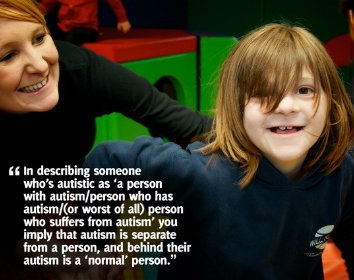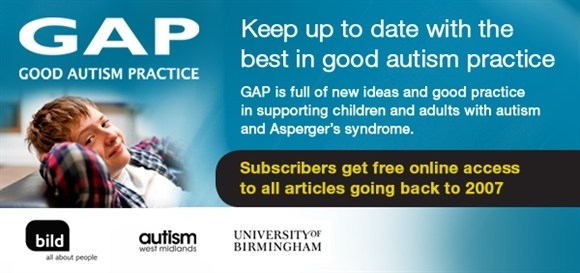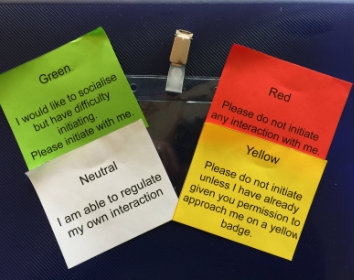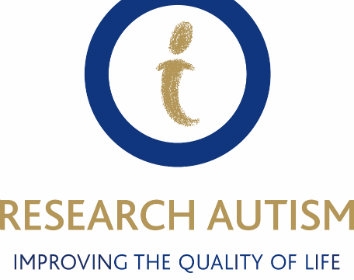Share Magazine Winter 2015
Is a person 'autistic' or do they 'have autism'? Insights from the UK autism community
20/10/2015
Lorcan Kenny
Consider for a moment the difference between the phrases ‘somebody who showed strength’ and ‘somebody who is strong’. The first phrase describes strength as a noun and leads us to think of it as something transitory, something that is likely to change across time, and which may relate to only one aspect of who a person is. On the other hand, when the adjective ‘strong’ is applied we are more likely to consider this a stable characteristic, something relatively unchangeable that may permeate into many aspects of a person’s life.
This is an example of how the language we use shapes the thoughts we have. We, therefore, have a responsibility to be considered in our choice of words when we describe people. This is particularly true when describing disabilities in general and autism specifically. The words we choose play a role in shaping the way we, as a society, think about, understand and accept both autism and autistic people.
It is for these very reasons that the National Autistic Society conducted a survey of 3,470 people to better understand the terms they prefer to use to describe autism. The survey gathered the perspectives of autistic people, their parents, extended family members or friends and professionals who work in the field, such as researchers and clinicians. The survey was undertaken and analysed by a team of researchers, and the results have been published in the journal Autism.
The take home message from this survey is that there is no single term that was universally accepted across all groups or even within each group. Some terms, however, did stand out for some of the groups – with some striking disagreements.
One notable difference, for example, was the finding that more than 60% of autistic respondents endorsed the use of the word ‘autistic’ compared with less than 40% of professionals who work in the field. Almost half of the professionals who responded, on the other hand, endorsed the term ‘person with autism’ compared with only 28% of autistic participants.
One example of why some people prefer ‘identity-first language’ (e.g. an autistic person) was given by one autistic participant, who said:
“Separating the person from their autism is damaging, as it reinforces opinions about autism being a ‘thing’ that can be removed, something that may be unpleasant and unwanted, and something that is not just another aspect of a whole, complete and perfect individual human being. Describing oneself as autistic is an extremely important and positive assertion about oneself, it means that one feels complete and whole as one is.”
The reasons behind many professionals’ inclination towards ‘person-first language’ (e.g. person with autism) were typified by one professional, who responded by saying:
“We need to describe the individual and the ASD as separate entities with the emphasis on the individual and not the disorder.”
It is difficult to argue that the professional’s preferences are stemming from anything other than good intentions and a general set of guidelines about how to describe disability that has been instilled into them throughout their training.
Nevertheless, the results of the survey show that many autistic people do not feel person-first language represents the way they think and feel about their autism. Instead, many autistic people report preferring the adjective form of the word ‘autistic’ because it might make people more likely to think of their autism as a stable, relatively unchangeable characteristic that is a central aspect of their identity. This description allows for autism to be framed in a positive light and encourages us to view it as a difference rather than necessarily always thinking of it as a deficit. This, according to many autistic respondents, is more in line with what autism meant to them.
To some of our respondents, the debate surrounding the use of positive language obscured other issues they felt were important. While respondents appreciated the positive ways in which autism affects people’s lives, many parents highlighted the potential danger that emphasising this may pose, diminishing the difficulties experienced by the people who are most disabled by their autism. One parent said:
“While it is good to celebrate autism and to find positive ways of talking about it, there is concern from parents of the most severely disabled children that their high level of need could become lost in this process.”
One area that received agreement across all groups who completed the survey was the dislike for the terms ‘high-functioning autism’ and ‘low-functioning autism’ which many people found too simplistic to describe the full range of abilities and needs that
they often aimed to capture. One parent of an autistic child reported:
“If you are viewed as high-functioning your needs are often dismissed, if you are viewed as low functioning then your strengths are often dismissed.”
Another contentious issue was the idea of autism being a spectrum upon which everyone is located to some degree. Professionals and family members were more likely to report using this type of description than autistic people themselves, some of whom were concerned that it trivialised the very real difficulties faced by those who are actually autistic.
All of us need to listen to these concerns.
There is no single way to describe autism, nor will there ever be. The terms people favour often centre on their beliefs of what autism is. When somebody is being described, they have the right to be described with words that fit their beliefs and when somebody is describing another they have a responsibility to respect that. With that in mind, professionals need to choose their words carefully, with the person being described in mind and to be willing to be flexible in different contexts and with different people.
RESOURCES AND LINKS
Download the full research report ‘Which terms should be used to describe autism? Perspectives from the UK autism community’, from the Autism journal website.





